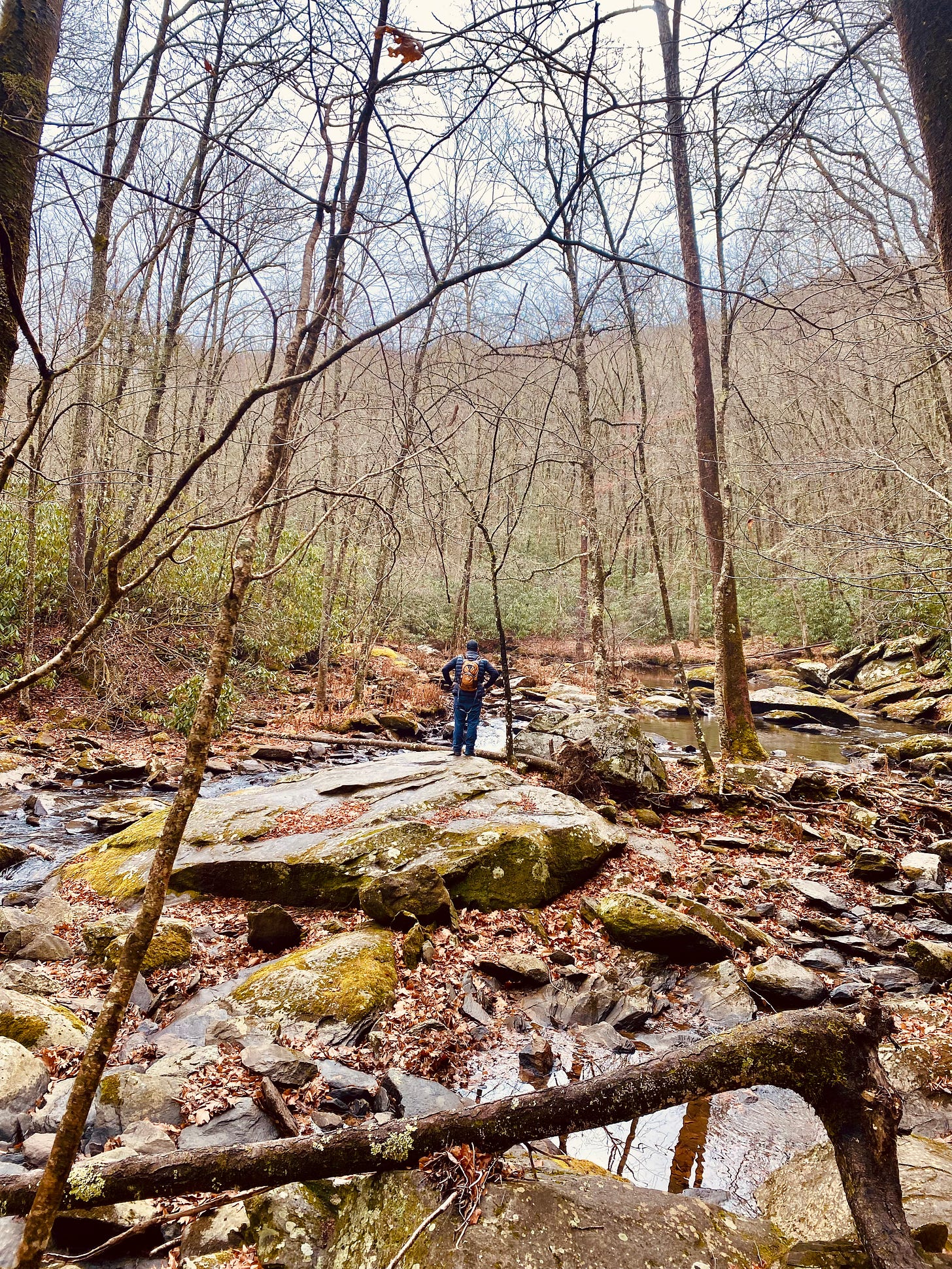Dear Lamb Chop fans,
It’s been a while since I have written, and for that I apologize to you, and myself. First, if you are worried, I have been perfectly healthy, the best I’ve felt in years, to the point where, while hiking recently, I forgot I’d had a transplant — until a few hours later when my phone annoyingly reminded me to take my medicine.
Hiking is an important milestone: It’s what my husband and I did on our second date. We’ve been wanting to re-create that tech-free time for a while now, but with my old heart, it would wear me out. But, a little more than a year after my transplant, at the beginning of December, we traveled to Valle Crucis, not far from Boone, and set out on a five mile trek, complete with stream crossings and rock scrambles. I won’t lie. The hike was tough, especially because without a vagus nerve connecting my heart and brain, it takes time for my body to get going.
Now, by no means was our adventure as though as famed post–heart transplant climber Kelly Perkins’ trek up Matterhorn. But it served as a reminder that I can push myself and do things I’d stopped dreaming about doing.
Another woman who reminded me of that was Hilary Baude.
I knew her as Hilary Steinour, and she was one of my idols and training partners early in my swimming career. Recently, her story caught my attention. Hilary is a living kidney donor, meaning she chose to have one of her kidneys extracted and donated to a stranger in need. She is now going on to advocate for living donation by showing what a person can do with only one kidney, instead of two. She’s run 12 marathons this year, two in Ironman competitions, including the Ironman Championships in Hawaii. The feats are impressive.
These women’s stories, along with the tale of Diana Nyad, who swam from Cuba to Miami as portrayed by Annette Bening recently, got me thinking: What would me story be? My husband and I bounced around ideas. Climbing was most likely out — I’m not great with heights, anymore, for some reason. Open water swimming with well-teethed sharks and cardiac-arrest-inducing jellyfish isn’t really for me either. Triathlons and running races are a little bit more aligned with what I’ve done in the past, but I worry about the time commitment it takes to train for those sometimes hours-long races. In the past, I’ve let that training consume me and don’t want to going forward.
The line of thinking led me to wonder why there’s so much emphasis on the physical. Maybe that’s because we associate a strong heart with incredible athletic feats. Or also because we, as humans, don’t really understand a lot about the heart-brain connection. But what I’ve been wondering is if there are intellectual feats to be conquered. Obviously my new heart isn’t going to turn me into an Einstein. But I have some anecdotes of my brain working much better, now that my body is most likely pumping more blood to my brain and healing from surgery.
A poke around PubMed hasn’t gotten me a definitive answer about why my brain is working better, but I did find some intriguing work on fiddling with the brain’s immune cells, called microglia, to reduce a type of hypertension that starts in the brain. Tamping down microglia activity in mice also reduced rapid heartbeats after a heart attack. And there’s recent work showing that heart failure can lead to calcium leaks in the brain, possibly contributing to dementia. I am not exactly sure how the brain and heart interact after a transplant because the vagus nerve connecting the two has been severed. (I will keep looking.)
What I can say is that with my mind more clear and my heart beating better, I definitely hope to remember more and engage more fully with the world around me, including the upcoming holiday festivities.
Last year, I endured the holidays, but they seem fuzzy and distant. Here’s to hoping this season is more cheery and bright. We’re off to good start. Please hug your loved ones and tell them (and show them) that you love them. I know I will.
All for now, and all our love. More to come in 2024.





